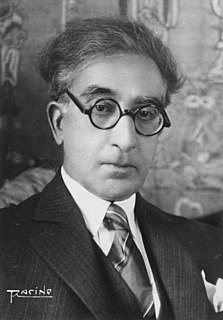A Quote by Lord Byron
What makes a regiment of soldiers a more noble object of view than the same mass of mob? Their arms, their dresses, their banners, and the art and artificial symmetry of their position and movements.
Related Quotes
Speak not of guilt, speak not of responsibility. When the Regiment of the Senses parades by, with music, and with banners; when the senses shiver and shudder, it is only a fool and and an irreverent person that will keep his distance, who will not embrace the good cause, marching towards the conquest of pleasures and passions. All of morality's laws - poorly understood and applied - are nil and cannot stand even for a moment, when the Regiment of the Senses parades by, with music, and with banners.
Categorical condemnation is the hatred of the mob. It makes cowards brave. And there is nothing more fearful than a religious mob, a mob overflowing with righteousness – as at the crucifixion and before and since. This can happen only after we have made a categorical refusal to kindness: to heretics, foreigners, enemies or any other group different from ourselves.
Object in/ and space - the first impulse may be to give the object - a position - to place the object. (The object had a position to begin with.) Next - to change the position of the object. - Rauschenberg's early sculptures - A board with some rocks on it. The rocks can be anywhere on the board. - Cage's Japanese rock garden - The rocks can be anywhere (within the garden).
Buddhism doesn't really have much time for political mass-movements. We are so trained to think of politics in terms of acting collectively, acting as part of mass-movements, that it's become hard for us to imagine a form of politics that is based on a high degree of introspection and self-examination.






































